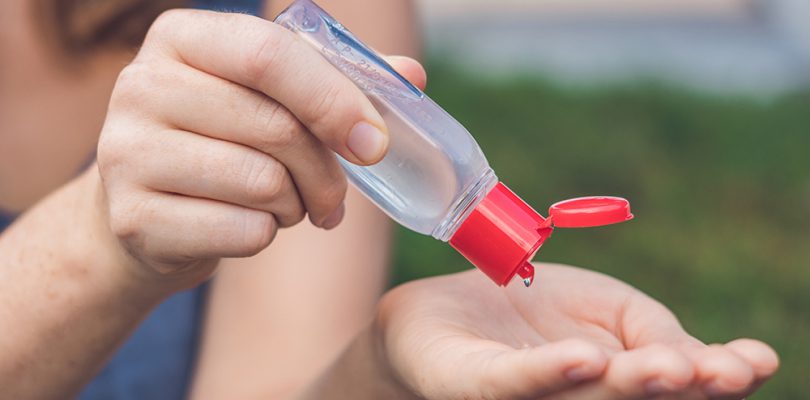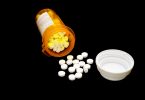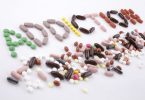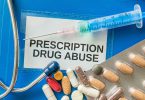Hand sanitizer poses a risk for both adults and children alike. Often times, it’s easy for hand sanitizer to be somewhere it shouldn’t or be used improperly. For example, it’s common for teachers to keep hand sanitizer pumps at their desk or request them in each students’ cubby. However, not carefully monitoring students while they use hand sanitizer can cause serious problems. Hand sanitizer contains alcohol, making it a poison, and should be stored as such.
What started as a bad idea among prison inmates and teens has transitioned to college students and the “twenty and thirty something” crowd. The trend does not involve drugs but rather it is drinking hand sanitizer to get high and it is a new cause for concern by medical professionals. If you are thinking, can you actually get high from drinking hand sanitizer, the answer is yes.
Why Is Hand Sanitizer So Bad?
Hand sanitizer is listed as a poison by The National Capital Poison Center. The main harmful ingredient in hand sanitizer is alcohol. This poisonous substance can often be decorated in fancy colorful bottles or smell like a sweet treat, making it especially enticing to young children and even more dangerous. Hand sanitizer contains a higher concentration of alcohol than a beer you might enjoy with your dinner. A typical beer is around five percent alcohol, while hand sanitizer is anywhere from forty to ninety-five percent alcohol. Depending on the child’s weight and how much has been ingested, which a poison call-center technician can assist you with, will determine how damaging the symptoms could be. Most times, a child will just lick their hands after using hand sanitizer. You should also contact your local poison control if you fear an adult or teen is abusing hand sanitizer intentionally.
Hand Sanitizer Poisoning Symptoms
Drinking hand sanitizer side effects can range from mild to severe, all depending on the weight of the person and the amount ingested. Children are very curious and are sometimes unaware of the toxicity of certain items. They may use hand sanitizer and then lick their hands or eat right afterwards. The hand sanitizer may trigger their gag reflex and may experience a burning sensation. While this is an unpleasant sensation, it’s not necessarily dangerous and can be easily managed over the phone with a representative from Poison Control. Since the hand sanitizer has a very unpleasant taste, it’s unlikely a child will intentionally swallow a large enough amount to have serious consequences. However, if a child or adult does, symptoms could include vomiting, dizziness, and seizures.
How Much Hand Sanitizer Is Too Much To Drink?
Children, teens, and adults should never ingest hand sanitizer as it’s considered a poison. In the case of accidental ingestion, anything more than a lick of hand sanitizer should be closely monitored. It’s very unlikely that dangerous side effects will occur due to only a lick of hand sanitizer. If a child or adult licks their hand, it’s best to wipe out their mouth and have something to drink. They will most likely only experience gagging and a burning sensation in their mouths. Determining just how much is too much, depends on the amount and weight of the child. A normal pump will dispense around 2.5ml of liquid and it will be around seventy percent alcohol. However, if this is ingested by a four-year old, it will take a few squirts to need medical attention. If any amount is ingested, you should call your Poison Center for assistance. Consuming large amounts of hand sanitizer can result in drowsiness, confusion, respiratory failure, and even death.
If You Suspect An Adult Is Abusing Hand Sanitizer
Since hand sanitizer contains higher levels of alcohol, it’s an easy candidate for abuse. Hand sanitizer is easily accessible, and minors can obtain it from local stores. Another appeal for adults and teenagers alike is that is easy to conceal. Teenagers can keep a bottle in their rooms without causing any suspicion. Hand sanitizer has been on the rise for teenagers wishing to experience the same effects as drinking liquor. However, due to hand sanitizers very high alcohol content, it can have devastating consequences. Teens can quickly fall into respiratory failure or need hospitalization. If you suspect someone is abusing hand sanitizer you should contact your Poison Center.
Tips To Avoid Hand Sanitizer Poisoning
In order to avoid hand sanitizer poisoning, some of these tips may be useful. These are especially true if your workplace involves young children.
- Keep hand sanitizer out of reach: Sometimes teachers or offices will put hand sanitizer out in the open, but it’s important to put it up and out of the way.
- Put out smaller bottles: This means if it’s ingested, then it may not be enough to cause any effects needing medical attention.
- Discuss proper usage: Only a dime sized amount is needed. Place this on your hands and rub together. Mention the potential negative effects of drinking hand sanitizer.
When Should You Contact Poison Control?
If you’re around very small children, it can be a scary thing when one of them ingests a toxin. If you suspect a child has ingested a poison, always call poison control. They will walk you through the necessary steps. You will never burden poison control by contacting them, because that is their job. Even if only a lick of hand sanitizer has been consumed, it’s still best to call for further instructions and professional advice.
Resources
















